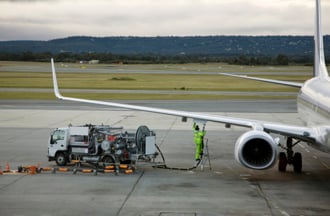
Hong Kong - The International Air Transport Association (IATA) launched the Integrated Sustainability Program (ISP) at the IATA World Sustainability Symposium (WSS) in Hong Kong.
ISP is a certification program offering airlines a comprehensive sustainability management and assessment framework. It is designed specifically for airlines and built upon the successful IATA Environmental Assessment (IEnvA).
Along with certification, the program includes training, consulting, assessments, guidance, and tools in four critical modules: environmental management, sustainable procurement, social responsibility & sustainability performance.
ISP certifications and modules can be pursued individually or as a fully integrated sustainability program. Certifications are subject to a recurring 2-year cycle of independent assessments.
“The comprehensive ISP certification program validates that an airline is managing its sustainability efforts at the highest level and in the broadest context. It does this by integrating the monitoring of environmental, social, and governance measures and providing all stakeholders, regulators, and customers with a transparent view of the progress. This comes with the added value of being designed for airlines’ specific needs, making ISP a practical framework to inform decision-making while ensuring that airlines’ efforts are aligned with global best practices,” said Marie Owens Thomsen, IATA’s Senior Vice President for Sustainability and Chief Economist.
The four ISP modules include:
- Environmental Management: IEnvA is now a fully integrated program within the ISP. By incorporating ISO14001:2015 principles, IEnvA enables organizations to assess their environmental footprint systematically, manage compliance obligations, and develop targeted management plans for emissions, waste, water, noise, biodiversity, and pollution. Airlines already certified under IEnvA will be incorporated under the ISP framework, with the option to take up additional modules/certifications.
- Sustainable Procurement: For the first time, the ISP brings ISO20400:2017-aligned sustainable procurement standards to aviation. This empowers organizations to evaluate and improve the sustainability of their supply chains and the goods and services they buy across environmental, social, and governance dimensions.
- Social Responsibility: The ISP integrates ISO26000:2010, the UN Guiding Principles on Business and Human Rights, and OECD guidelines into a certifiable framework to help organizations map social risks and opportunities. These encompass establishing customer protection and service, human rights due diligence processes, driving continuous improvement in community engagement and investment, for example.
- Sustainability Performance: This program allows airlines to measure and monitor their environmental, social, and governance performance. Following the new ISP framework will support transparent reporting and informed decision-making in line with evolving organizational, regulatory, customer and investor ESG ambitions and requirements.
First Movers
At the WSS in Hong Kong, it was also announced that Air New Zealand and EVA Air are the first two carriers to receive the Sustainable Procurement certification under the ISP.
“As New Zealand’s national airline, we’ve always had a responsibility to help our people and communities thrive. For Air New Zealand, sustainable procurement means building on the collective strength and innovation of our supplier network, and working together to create better outcomes for people and the planet. By backing IATA’s new ISP, we want to play our part to help lift standards across aviation, and demonstrate that doing what’s right is about doing good business,” said Kiri Hannifin, Air New Zealand Chief Sustainability and Corporate Affairs Officer.
“Earning this certification marks a key milestone in EVA Air’s sustainability journey, reflecting our commitment to integrating sustainability into procurement and collaborating with partners to build a more resilient supply chain,” said Jason Liu, Chief Sustainability Officer at EVA Air.
Future Development
ISP will evolve over time as IATA continues to work with a broad spectrum of industry participants and stakeholders to ensure that industry standards, guidance, and certifications remain practical and impactful.
At present, ISP is only available to airlines. However, it will evolve to ground handlers, cargo handlers, airports, MROs, and caterers.
> Learn more about the Integrated Sustainability Program (ISP)
For more information, please contact:
Corporate Communications
Tel: +41 22 770 2967
Email: corpcomms@iata.org
Notes for Editors:
- IATA (International Air Transport Association) represents over 360 airlines accounting for some 85% of global air traffic.
- You can follow us on X for announcements, policy positions, and other useful industry information.
- Fly Net Zero
- The ISP was shaped in close collaboration with leading airlines and aviation stakeholders who have played a pivotal role in piloting and refining the program’s standards and guidance. These include:
- Air Astana
- Air Canada
- Air New Zealand
- Air Serbia
- Airbus
- ANA - All Nippon Airways
- Emirates
- EVA Air
- Finnair
- Gulf Air Group
- International Airlines Group (IAG)
- Kenya Airways
- Malaysia Airlines
- Qatar Airways

